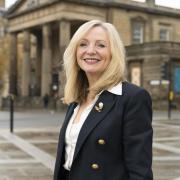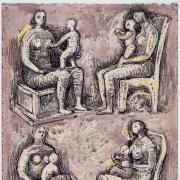Support grows for devolution and a greater say in shaping the future of Yorkshire. Richard Darn reports

Yorkshire’s roots go deep into history – in fact there was a time when independence was almost taken for granted. The county’s antecedent is the 6th century Anglian Kingdom of Deira centred on York. That merged with Bernicia in the north east to become Northumbria – a true northern powerhouse that reached its cultural and political zenith in the century that followed. It forged a distinct northern identity of which Yorkshire was a key component.
Even back then southerners mocked their northern cousins for having an ‘uncouth dialect’, labelling them as the awkward squad who would rebel at the first opportunity. And they were right! Far sooner would they accept the overlordship of a pagan Norsemen than a Saxon kinsmen - the fearsome Viking, Eric Bloodaxe, was one famous beneficiary. But that’s all history now – or is it?
Well over a thousand years later Yorkshire retains a keen sense of its identity and the pot is boiling once again to return powers to the county. Devolution has been all the rage for 20 years with Scotland, Wales and Northern Ireland given a big say in areas like health, education, investment and transport. More recently English cities such as Birmingham and Manchester have followed suit. But Yorkshire has been sidelined, despite a strongly held view that too much of what happens locally is controlled by people too far away and with no stake in the region.
That’s the view of Keighley MP John Grogan, who was one of a host of prominent figures at the launch of a forum to support the One Yorkshire push, hosted by the Archbishop of York at Bishopthorpe Palace. Joining him were academics, business people, politicians and community leaders, all united in calling for a greater local say in shaping the future. Their timing could hardly have been better - it coincided with the chaos on the rails with trains being cancelled across the north due to the botched introduction of new timetables. Government ministers 200 miles away were slammed for their slow reaction to the crisis.

Dr John Sentamu pitched into the debate at the launch: ‘In an age of populism and identity politics – here is a better way of bringing people together for the Common Good...By getting together this way we can work towards a strong, prosperous, diverse and creative and open Yorkshire. A place of shared opportunity. The reality is that many decisions are best made locally. Devolving power means people are better served by faster, more contextually relevant decisions, with real local accountability.’
At the launch Natalie Sykes, regional director of the Institute of Directors, was appointed to lead a Think Tank to get a better deal for Yorkshire - underlining that many business leaders are also on side. But it’s a plea that has had a cool response from Westminster, despite devolution being backed by 18 of the 20 Yorkshire councils.
The two who have not signed up represent the fly in the ointment. The Sheffield city region has gone ahead and elected its own mayor (Barnsley MP Dan Jarvis) even though Barnsley and Doncaster have both backed out and thrown in their lot with One Yorkshire. Even Mr Jarvis prefers the county-wide deal. Not deterred and in a move that seems detached from the facts, Government ministers have refused to look at wider devolution until the Sheffield plan (which originally also included north Derbyshire) is implemented. Which leaves things in a bit of a pickle.
However, before positions become entrenched are we certain that having a devolved county would really improve decision making? Perhaps it would just create another layer of bureaucracy. And is it something Yorkshire people actually want? ‘Clearly people are not marching in the streets demanding change,’ admitted John Grogan, ‘but when they have been asked in polls in Barnsley and Doncaster they overwhelming favoured the One Yorkshire deal. And when you talk to people there is a feeling we are losing out. The push for greater self government is not just a political thing either as it’s supported by Conservative councils too. ‘The argument is both an emotional and rational one. For example local people are far more responsive to local transport needs than someone sat in Westminster. Yorkshire also has a strong identity and the institutions should match and reflect that - no one will ever hear “Sheffield City Region” chanted at a football match.
‘The South Yorkshire situation has created a bit of an impasse and the mayor himself has no power or money. We need to find a way ahead.’ If the day does eventually dawn when the Government nods its approval to One Yorkshire then arguments will start about where the mayor should be based. Leeds or Sheffield has too much rivalry to agree to each other and Hull is not central enough.
But perhaps we are over-thinking this. Why not take a lead from our 10th century ancestors and plump for York? The crafty northerner, Wulfstan, Archbishop of York, was a king maker par excellence and opened doors to put Eric Bloodaxe on his throne in the city. But if that is taken as a cue for John Sentamu to beef up his advocacy, he should take note that the King of Wessex took such a dim view he invaded, arrested the church leader and banished him. As far as we know he never saw the broad acres again!



























